Non-communicable chronic diseases have a major impact on the health of European citizens on the burden on health systems, and on the productivity of our societies. Contributing for decision makers in Member States to have the most up to date knowledge on best practices related to the reduction of such burden is thus most relevant to better support national health systems and EU citizens. Supporting the awareness, commitment and roll-out of initiatives that have shown to work is an essential way of creating and delivering value to the citizens.
Whereas a best practice cannot be replicated without adaptation and adjustment, the results, experience of ongoing and past initiatives always constitute a wealth of relevant knowledge. Taking them into consideration may allow to avoid mistakes or to leap frog painful development steps; ignoring them may result in huge wastes of time and resources, and of opportunities to improve public health.
Public health authorities should have access to the best scientific evidence base and to the expert evaluation of tried practices whenever considering disease prevention and management options. They should also have the opportunity to be briefed directly by those that have successfully led (past) initiatives and discuss, among others, pitfalls and success factors. Finally, they should be supported in the key steps of preparation of implementation so as to increase scope and likelihood of success.
Building on such information and support, and considering their national context and political priorities, Member States can then be in a better position to proceed with wide scale implementation of validated best practices and interventions. The stronger the commitment and the wider the roll-out, the more promising the results for the patients and citizens will be.
In order to support this process of promoting that more tested solutions benefit the citizen as fast and wide as possible, the Commission has set up the Steering Group on Health Promotion, Disease Prevention and Management of Non Communicable Diseases This Group selects best practices for transfer between countries with the support of the 3rd Health Programme and other sources.
During a marketplace workshop in March 2018 the Danish Whole Grain Partnership (WGP) initiative was presented to Member States. Afterwards, several Member States have already expressed interest in wider rolling out of this practice and the Commission wishes to further support this process.
For that purpose, this call for proposals is being launched to facilitate the transfer of this best practice to other countries.
Topic 3 – Transferring the Danish Whole Grain Partnership initiative to other countries
The proposals should describe how the concept of WGP will be deployed in the participating Member States, including how the responsible authorities will be involved and their commitment secured with the objective of achieving the sustainable widest possible roll-out of the practice by the end of the action. The major parts of implementation should take place in a duration of up to 3 years.
Among others, the proposals should describe how actions will be taken to:
assess the preparedness and feasibility of (local, regional, national) health departments in selected countries for introducing WGP;
increase the awareness among policy-makers and health professionals of the importance of whole grain as a part of a diet to promote health and prevent diseases;
develop, adopt, translate and provide high quality implementation tools for WGP;
inform and educate food business operators to get their commitment to use more whole grain in their products (such as bread, pasta and rice) and to increase their offer of whole grain options, in the appropriate context (namely with the assurance – via the use of nutrition profiles or other effective action – that the initiative will not promote nutrionally unbalanced products);
implement local, regional or national activities for contextualised practice transfer;
monitor the implementation process and assess the outcome of the implementation of WGP;
design measures to assess and increase the sustainability of WGP after the implementation phase;
develop opportunities and supportive networks for capacity building between the participating countries and the EU.
Actions such as feasibility assessments or studies, legal checks, needs assessment (including training), cost estimations, preparation of replication manuals (including translations where necessary), study visits and twinning, workshops with stakeholders, etc., would be expected. Unless duly justified, it is expected that the public health authorities of at least the following countries will be involved: Denmark, Luxembourg, Norway, Romania and Slovenia.
The proposals should describe and justify which indicators will be used to measure outcome (e.g.: increase in daily intake of whole grain, increase in use of whole grain in food products, increase in offer of whole grain options) and to monitor the implementation of the action and measure the success of transferring the best practice (e.g. number of committed food business operators; translation and validation of guidelines and tools). To complement the task of monitoring and evaluation, the selected proposal will be provided with an OECD guide to support the monitoring of the implementation of best practices in general and the design of indicators in particular. The OECD may also provide specific advice to this action on how to optimise the cost-effectiveness of the best practice and an economic analysis of its results.
For more information see the call website on the Participant Portal here
Article Source: https://www.linkedin.com/pulse/3rd-health-programme-call-transferring-wholegrain-other-andy-bleaden/

